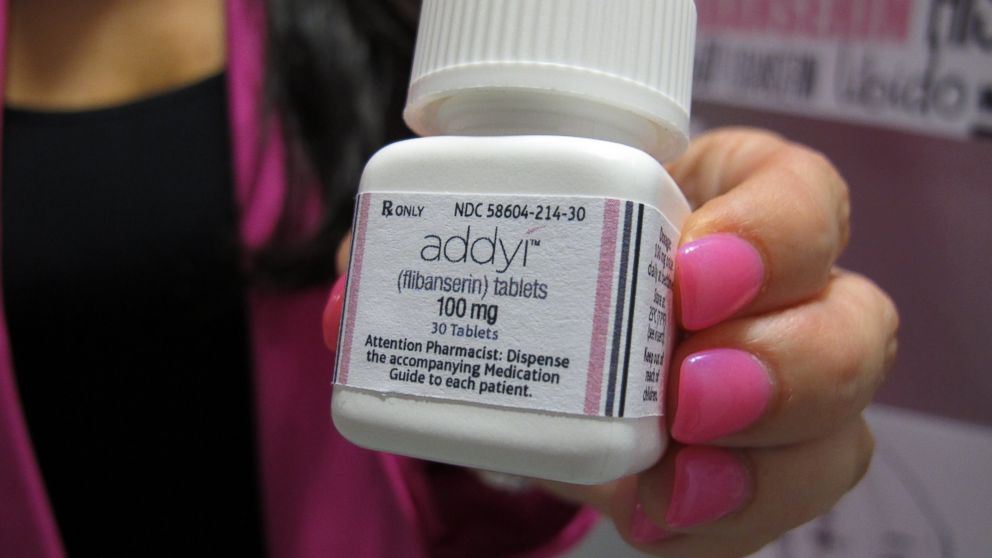Benefits of Taking Female Libido Drug Are 'Marginal' Says New Analysis
— -- The first drug approved by the U.S. Food and Drug administration to target the "female libido" is again facing controversy after a review of studies called the benefits “marginal.”
The drug, called flibanserin and marketed as “Addyi,” was designed to help women with hypoactive sexual desire disorder, which is characterized by the FDA as having “low sexual desire that causes marked distress or interpersonal difficulty." Flibanserin was initially rejected by the FDA twice over concerns about its effectiveness and side effects. It was approved last August by the FDA. Addyi is made by Valeant Pharmaceuticals' Sprout unit.
Researchers from the Netherlands and Brussels published an analysis of eight studies, including three unpublished studies, that looked at a total of 5,914 women who had taken the drug. Their results, which were published in the Journal of American Medicine, found that women on the drug had on average “one-half” additional satisfying sexual experience per month, or one per two months, and that there was a “significantly” increased risk of side effects including dizziness, nausea and fatigue.
“The findings of this review suggest that the benefits of flibanserin treatment are marginal, particularly when taking into account the concurrent occurrence of AEs [adverse events],” the study's authors concluded.
The drug was also concerning to researchers because women taking it must avoid alcohol, or risk developing dangerously low blood pressure.
In an accompanying editorial, two doctors called the drug “marginally effective.”
“The flibanserin saga is unsatisfying,” wrote the two doctors, Dr. Steven Woloshin and Dr. Lisa Schwartz of the Dartmouth Institute for Health Policy and Clinical Practice. “The FDA approved a marginally effective drug for a non-life-threatening condition in the face of substantial – and unnecessary – uncertainty about its dangers. Women with distressing sexual desire problems need good treatments. We all need a drug approval process that delivers good decisions based on adequate evidence.”
Woloshin and Schwartz are also the founders and editors of the website Informulary, which translates FDA data on approved drugs into easily readable information.
The review, however, has its critics among some medical experts in the gynecological and sexual health community. The International Society for the Study of Women’s Sexual Health released a statement today saying the review's authors had a “distorted analysis” of the research trials.
The society pointed out that the researchers included findings from studies where the dosage was different or given at a different time than what was approved by the FDA. The review's authors included a study in which women were given 50mg of the drug twice a day instead of the 100mg at night approved by the FDA.
“As authorities in the area of sexual function and dysfunction in women, in particular hypoactive sexual desire disorder (HSDD), the executive committee of the International Society for the Study of Women’s Sexual Health (ISSWSH) are concerned that the aforementioned articles would be accepted by and published as quality science and factual commentary,” the society said in a statement.
The society also alleged bias of the review's authors, a claim that Dr. Loes Jaspers, the lead author of the review, strongly denied.
Jaspers told ABC News she hopes there will be more research on the medication and that women interested in taking the medication speak to their doctors about possible side effects.




